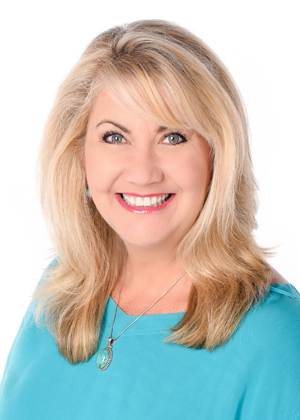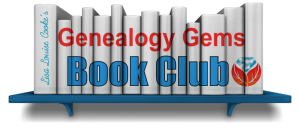by Lisa Cooke | Aug 14, 2011 |

Lisa Louise Cooke is the author of several books including The Genealogist’s Google Toolbox, 3rd edition. She produces and hosts the popular Genealogy Gems Podcast, and the free weekly YouTube show Elevenses with Lisa at the Genealogy Gems YouTube channel. She offers a Premium Membership service at her website ( https://lisalouisecooke.com ) featuring exclusive on-demand genealogy education. And she writes a regular column for Family Tree Magazine and produces the Family Tree Magazine Podcast.
Lisa found her passion for family history at her grandmother’s knee at the age of 8. She is now the owner of Genealogy Gems, a genealogy and family history multi-media company founded in 2007. She is Producer and Host of the Genealogy Gems Podcast, the popular online genealogy audio show available at www.GenealogyGems.com, on your smartphone’s native podcast app, and through the Genealogy Gems app available through app stores. Her podcast brings genealogy news, research strategies, expert interviews and inspiration to genealogists in 75 countries around the world, and has been downloaded nearly 4 million times. She also produces weekly genealogy YouTube videos on the Genealogy Gems YouTube channel and a monthly live show called Elevenses with Lisa for Premium Members.
Lisa’s offerings are not limited to online. She is a sought after international genealogy speaker. Whether in person or online, Lisa strives to dig through the myriad of genealogy news, questions and resources to deliver the gems that can unlock each genealogist’s own family history treasure trove!
Family is not just a priority professionally. Lisa is a doting wife to Bill, the proud mom of three daughters, and has added the role of Grandma to her resume. She counts her blessings every day for the love, fulfillment and laughter that family brings to every aspect of her life.
Lisa in the Press
Click here to listen to interviews and read articles about Lisa and Genealogy Gems.
by Lisa Cooke | Aug 29, 2015 | 01 What's New, images, Libraries, Newspaper, Photographs, Preservation, Records & databases, United States
The Library of Congress (LOC) is a dream destination for many U.S. genealogy researchers, but most of us can’t get there in person. Here are 4 ways–all online–to access the mega-resources of the Library of Congress for genealogy.


1. World Digital Library: for the bigger picture
The Library of Congress is home to the World Digital Library, “a collaborative international project led by the Library of Congress. It now includes more than 10,000 manuscripts, maps and atlases, books, prints and photographs, films, sound recordings, and other cultural treasures.
What can be useful to genealogists? The World Digital Library’s Timelines of U.S. History and World History work together with interactive maps on the same topics. The worldwide and historically deep scope of digital content can help you explore your deep cultural roots in another place. The History and Geography Section offers great visuals and includes (small but growing) sections on biography and genealogy.
2. Chronicling America: for finding ancestors in the news
The Chronicling America newspaper site, hosted by the Library of Congress, catalogs U.S. newspapers and provides free access to more than six million digital newspaper pages (1836-1922) in multiple languages. Run searches on the people, places and events that shaped your ancestors’ lives. Results may include:
- Advertising: classifieds, companies your ancestor worked for or owned, store ads, runaway slaves searches and rewards and ship arrivals or departures.
- Births & deaths: birth announcements, cards of thanks printed by the family, obituaries and death notices, funeral notices, reporting of events that led to the death, etc.
- Legal notices and public announcements: auctions, bankruptcies, city council meetings, divorce filings, estate sales, executions and punishments, lawsuits, marriage licenses, probate notices, tax seizures, sheriff’s sale lists.
- Lists: disaster victims, hotel registrations, juror’s and judicial reporting, letters left in the post office, military lists, newly naturalized citizens, passenger lists (immigrants and travelers), unclaimed mail notices.
- News articles: accidents, fires, etc. featuring your ancestor; front page (for the big picture); industry news (related to occupations); natural disasters in the area; shipping news; social history articles.
- Community and social events like school graduations, honor rolls, sporting and theater events; social news like anniversaries, church events, clubs, engagements, family reunions, visiting relatives, parties, travel, gossip columns, illnesses, weddings and marriage announcements.
With Chronicling America, you can also buy medicine online china subscribe to receive “old news” on many of your favorite historical topics. Sign up for weekly notifications that highlight interesting and newly-added content on topics that were widely covered in the U.S. press at the time. (Click here to see a list of topics.) To subscribe, just use the icons at the bottom of the Chronicling America home page.
3. Flickr Creative Commons – Library of Congress Photostream for old pictures
 Flickr Creative Commons describes itself as part of a “worldwide movement for sharing historical and out-of-copyright images.” Groups and individuals alike upload old images, tag and source them, and make them available to others. The (U.S.) Library of Congress photostream has thousands of photos and a growing collection of front pages of newspapers.
Flickr Creative Commons describes itself as part of a “worldwide movement for sharing historical and out-of-copyright images.” Groups and individuals alike upload old images, tag and source them, and make them available to others. The (U.S.) Library of Congress photostream has thousands of photos and a growing collection of front pages of newspapers.
Tip: The Library of Congress isn’t the only library posting cool images on Flickr Creative Commons. Look for photostreams from your other favorite libraries and historical societies. (Use the main search box with words like “Ohio library” and limit results to groups. You’ll see who’s posting images you care about and you can even follow them!)
4. Preserving Your History video for archiving your family history
 The Library of Congress has a FREE video about how to create and properly preserve digital or print archival scrapbooks.
The Library of Congress has a FREE video about how to create and properly preserve digital or print archival scrapbooks.
It’s a 72-minute video by various experts with a downloadable transcript on these topics:
- Basic preservation measures one can do at home for long-lasting albums and scrapbooks
- Pros and cons of dismantling old scrapbooks and albums in poor condition
- How to address condition problems
- Preservation considerations for digital scrapbooks and albums
- How to participate in the Library’s Veterans History Project.
Also check this out: the Preserving Your Family Treasures webpage on working with originals at the Library of Congress website.
More Resources
The Library of Congress is Your Library, a four-minute video introduces the Library of Congress and gives a brief history.
VIDEO: Exploring LOC.gov, a three-minute video highlighting the Library’s online collections and providing searching techniques.
How to Find Stuff at the Largest Library in the World, a 5-minute introductory video showing how to use subject headings, research databases and other helpful tools to find books, photos, sheet music, manuscripts and more at the Library of Congress or other locations.

Do you know someone who would enjoy this article? It’s easy to share by using the social media share buttons on this page.
by Lisa Cooke | Nov 18, 2014 | 01 What's New, Book Club
 Many of you are reading (or have already finished) our Genealogy Book Club featured book for the quarter, She Left Me the Gun: My Mother’s Life Before Me by Emma Brockes. In the just-published November episode of the Genealogy Gems podcast, Lisa and I talk a little more about this fantastic book from the family historian’s point of view. We get a kick out of how she uses her mother’s dog-eared address book as a family history source.
Many of you are reading (or have already finished) our Genealogy Book Club featured book for the quarter, She Left Me the Gun: My Mother’s Life Before Me by Emma Brockes. In the just-published November episode of the Genealogy Gems podcast, Lisa and I talk a little more about this fantastic book from the family historian’s point of view. We get a kick out of how she uses her mother’s dog-eared address book as a family history source.
What do YOU think of the book? On Thursday, December 4, we invite everyone to post comments on She Left Me the Gun on the Genealogy Gems Facebook page. We welcome comments for a full 24 hours (12am-12am Eastern Standard Time, USA) for our worldwide audience. But we’ll monitor the page and give feedback from 9am-9pm EST. Emma Brockes herself hopes to pop in with comments and responses to your questions. (So start thinking of what you want to say!)

Author Emma Brockes
Of course, I’m really looking forward to the December podcast, when you’ll hear my conversation with Emma about the book. Here’s my favorite quote from the interview:
“When [your] parent dies…your relationship with their history changes almost overnight. It suddenly becomes much more relevant to you because you feel like you are the only one left who is in a position to remember it. So having never wanted to know anything about my mother’s life, suddenly after her death it seemed imperative to me to find out absolutely everything….It felt to me that I couldn’t…stake out the parameters of what I’d lost until I knew everything there was to know about her.” -Emma Brockes, on She Left Me the Gun
Meanwhile, we have two more books to recommend this quarter for our no-fuss genealogy book club, based on YOUR feedback:

One of our listeners, Mary, wrote to us about The Woman in the Photograph by Mani Feniger. She said, “I just ordered this book and thought you might be interested in reading it. I am looking forward to reading it myself.” Here’s a little blurb I found on the book: “Mani Feniger wanted nothing to do with the relics of her mother’s life before she escaped from Nazi Germany in 1936. But when the fall of the Berlin Wall exposed the buried secrets and startling revelations of her mother’s past, she was drawn into an exploration–of history and family, individuality and identity, mothers and daughters–that would change her life forever.”

And here’s a suggestion from Mike: “Here’s a book I found that you and your listeners might also enjoy. The Lost German Slave Girl by John Bailey recounts the story of a poor emigrant family and what happened to one of the daughters. I found it fascinating. The story is non-fiction and takes place around New Orleans in the first half of the 19th century. There is much family research involved, some heart-wrenching descriptions of what the emigrants suffered, and delightful insights into the New Orleans of that time period. It’s the kind of research that we family historians love to do but is more dramatic than many of the personal stories we work on.”
Mark Your Calendar: Thursday, December 4
We invite you to post comments on She Left Me the Gun on the Genealogy Gems Facebook page.










